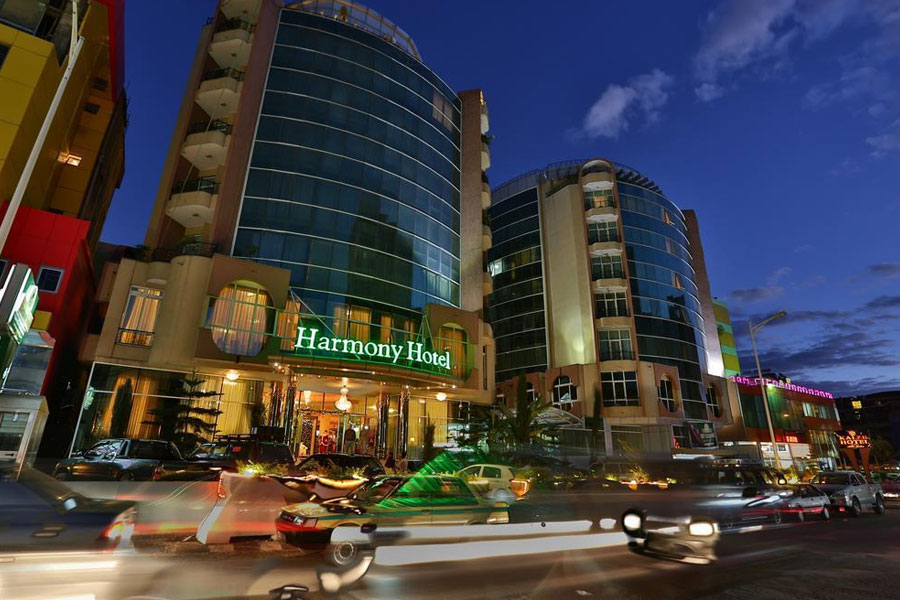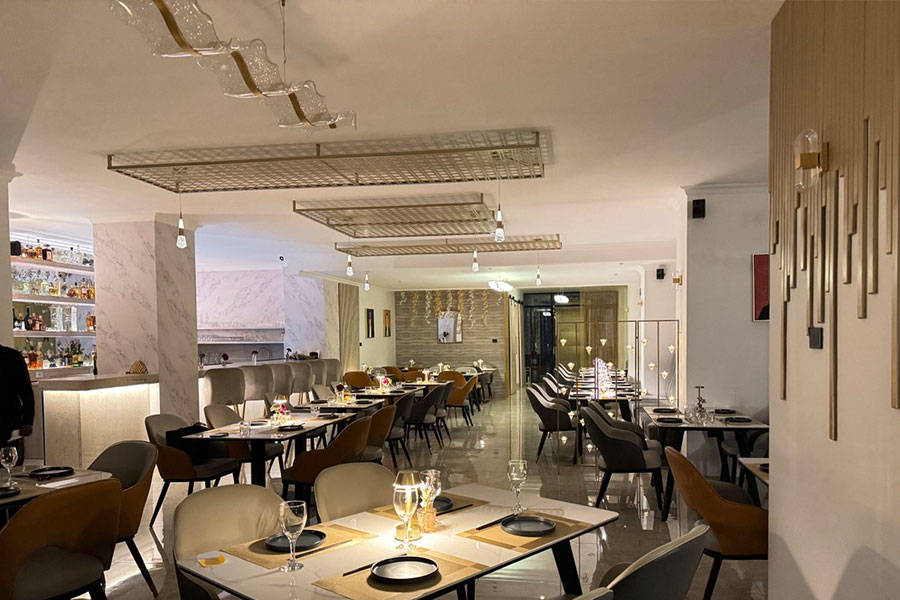
View From Arada | Aug 19,2023
Adore Addis, a co-working space in the Bole Atlas area, is set to be fully launched in two months, developing an area covering 700sqm. It lies inside an eight-story building and aims to provide a shared space where clients can work, study, or complete research.
The idea to open a co-working space was conceived two years ago by Bilen Aynu, and her sister Zebib. Both returnees from abroad, they looked for a working space in the capital but had no luck, leading Bilen's sister to rent out a whole building. Bilen, who has had experience in the service industry, co-owning Savor Addis Restaurant, an upscale eatery near Atlas Hotel, decided to make it a high-end co-working space.
Although co-working spaces are as common as ordinary offices in much of the world, Ethiopia has been slow to catch up. Globally, there are more than 19,000 co-working spaces, according to coworkingresources.org. In Ethiopia, however, the number remains below 10, although the country's first co-working space, Ice Addis, was opened in 2011. IceAddis and Xhub come attached with incubation hubs, and their usual customers seem to be startups. Recent entrants like BlueSpace, Sheger Hive, and Pro Office, however, avail working spaces as a standalone service.
Several co-working spaces have come and gone over the past few years.
Two years past its initial schedule, Adore Addis' plan to open was delayed due to court cases between the building owners and a former lessee. The outbreak of the COVID-19 pandemic did little to speed things up. The space has been open unofficially to customers for at least a year now, though some of the finishing on the building is yet to be completed.
As Adore Addis is not open 24 hours, it has been at times difficult to attend a late or early morning meeting, says Eden Sahle, founder of Yada Technology Plc, [She is also a columnist on this paper] who signed up for Adore Addis' working space in March this year.
Despite having her own rented office, Eden decided to use the facility at Adore Addis because of interruptions of electric power and internet services at her office. Although she finds internet connections are more stable in hotels, the atmosphere is not designed as a working space and distracts her.
“Here, they give you backup options if the WiFi is down,” she told Fortune.
The appeal for customers to use these facilities is to lease a space for the short-term, especially useful for small companies and startups. What is usually spent on long-term commitments for office spaces can be used to pay for other aspects of the business.
A regular at BlueSpace, Ida Abebe, a fifth-year mechanical engineering student, has been using the service for a little over a month. She finds that spending her day at a workspace is more suitable than at a hotel or home because it provides a quiet atmosphere with little distraction. She does not have to worry about frequent power outages or WiFi interruptions.
"It's also motivating to see other people working around me, especially now in times where a lot more people are working from home," said Ida. "Working at home, for me, has too many distractions."
She pays a monthly fee for her membership at BlueSpace and goes there up to four days a week. Before deciding to settle at BlueSpace, she researched other workspaces in the capital, weighing commute distances and their hours of service.
"BlueSpace was the only one I could find that is open until 11pm, and that was an important factor," she explained.
Although the services she has encountered there are satisfactory, Ida would have liked it to be open 24 hours, a more suitable schedule for her online classes administered from California, a whole 10 hours behind East Africa Time (EAT).
Nega Asfeha, an expert with over three decades of property management and consulting, sees that the market has been trending globally and in Africa.
Foreign entrants are also eyeing the market, according to Nega. He recalls that an international company based in London was scouting for space five years ago but postponed the project, not having found an ideal spot.
“This new workspace utilisation is a trend,” he said.
But that also presents a challenge for the co-working space business as spaces may remain vacant when renters leave and until new customers can be found. The prospect for price cutting as the number of buildings in Addis rises and many more companies start providing similar services worries those already in the business.
"We expect many spaces to enter the market soon," Bilen told Fortune. "Competition in price will arise."
Adore Addis so far has required an investment of 15 million Br, and the founder expects to be faced with a lot more expenses before the workspace officially launches. A construction team is working on remodeling the third floor while the basement and the first floor are yet to be renovated.
The first basement is planned to be a parking space, while the upper level will be a restaurant where customers can drive in and grab their food. The ground floor too will have a coffee area. The first up to the third floors are to be fully dedicated as a working space to accommodate 120 individuals. The workspaces are also equipped with meeting rooms.
From the fourth floor up, Bilen's vision is to set up a hotel.
Once fully opened, Adore Addis will be a 24-hour service center, which will require the company to double its workforce from the 20 it has now, according to Bilen.
PUBLISHED ON
Apr 24,2021 [ VOL
22 , NO
1095]

View From Arada | Aug 19,2023

Life Matters | Sep 11,2020

Radar | Aug 10,2025

Fortune News | Jul 18,2021

Fortune News | Jul 11,2021

Sunday with Eden | Jul 31,2021

Fortune News | Mar 25,2023

Radar | Apr 03,2021

Featured | Apr 19,2025

Commentaries | May 08,2021

Dec 22 , 2024 . By TIZITA SHEWAFERAW
Charged with transforming colossal state-owned enterprises into modern and competitiv...

Aug 18 , 2024 . By AKSAH ITALO
Although predictable Yonas Zerihun's job in the ride-hailing service is not immune to...

Jul 28 , 2024 . By TIZITA SHEWAFERAW
Unhabitual, perhaps too many, Samuel Gebreyohannes, 38, used to occasionally enjoy a couple of beers at breakfast. However, he recently swit...

Jul 13 , 2024 . By AKSAH ITALO
Investors who rely on tractors, trucks, and field vehicles for commuting, transporting commodities, and f...

Oct 18 , 2025
The political establishment, notably the ruling party and its top brass, has become p...

Oct 11 , 2025
Ladislas Farago, a roving Associated Press (AP) correspondent, arrived in Ethiopia in...

Oct 4 , 2025
Eyob Tekalegn (PhD) had been in the Governor's chair for only weeks when, on Septembe...

Sep 27 , 2025
Four years into an experiment with “shock therapy” in education, the national moo...